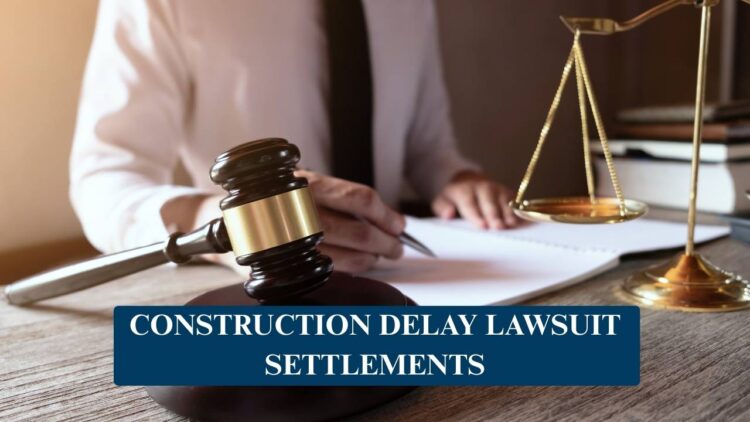When the construction project is not completed on schedule, the contractors may face the consequences of a construction delay lawsuit. The lawsuit related to the construction delay depends on the type of delay, so to manage the lawsuit, you should understand its proceedings well.
Construction Delay Lawsuit Settlements
In construction projects, the delays, budget disruptions, accidents, and other issues can lead to legal disputes. The unexpected events, mismanagement, and other factors can cause a delay in the construction project.
The construction delay lawsuit can be filed by the project owner or developer against the contractor, or the contractor can file against the project owner if it is caused by the late payments or design changes, or the customers against the construction agency or owner.
The construction delay lawsuit can be filed to recover the additional costs, labor costs, equipment rentals, or other expenses related to the delay of the project. However, the settlement depends on the type of construction delays, as it affects the settlement outcome.
What are the types of construction delays?
The construction delays have the following common types that you should know if you wish to understand the legal process:
- Excusable delays:
- The delay in the construction project caused by the unexpected events, such as extreme weather, labor strikes, or others that are beyond your control, will be counted as an excusable delay.
- Non-excusable delay:
- The delays in the construction project caused by the contractors’ negligence or their own actions, such as mismanagement, poor planning, and subcontractor delays, are non-excusable.
- The contractor will have to be accountable for the construction project delay and may have to face penalties.
- Compensable delays:
- The delay in the construction project was caused by the project owner, for which the contractor can recover compensation.
- The delay can be caused by late design approval, changes in construction design, or other factors.
How to manage the Construction delay lawsuit?
If you are a contractor filing a construction delay claim against the project owner or facing a delay lawsuit, you should manage the lawsuit in the following manner:
- You should gather documents related to the construction delays, such as the construction project contract, the cause of the delay, and the impact of the delay.
- You should go through the construction project clause and terms to see if there is any way to resolve the claim or whether the delay claims are compensable or not.
- You should prepare the official record of the project activities to show the delay and its effect on the construction project work.
- When the construction delay lawsuit is filed against the parties related to the project, the contractor or the project owner, a negotiation attempt will be made involving a neutral third party.
- If both parties cannot reach an agreement for the settlement, it may proceed to the federal court for the final decision to be taken by the judiciary.
What are the defences to a construction delay lawsuit settlement?
If you are filing a construction delay lawsuit or defending one against you, you should be aware of the important factors that can affect or defend the construction lawsuit, such as:
- Concurrent Delay: When the delay was caused by multiple activities, and if the field delay was caused by some other delay, it is regarded as a concurrent delay. If it is proved, the compensation can be argumentative, and the defendant may not have to compensate, but it totally depends on the analysis of the construction projects and the earlier delay.
- No damages delay cause: Construction projects are prone to delays, and some contracts have a no damage delay clause, where no one has to pay for the delay; instead, they can receive the time extension.
- Notice requirements: The contractors need to send the delay letter to the owner or GC if they experience the project going behind schedule. This will help in documentation and later present it as evidence, whereas if the notice is not sent, it can affect the delay lawsuit.
- Force Majeure Events: If the contract has a force majeure event clause, that is, an act of God or unforeseen events that are beyond the control of both parties, the delay claims will be excused.
The delay in a construction project is common due to various factors; however, if you are facing a lawsuit regarding delays, it is important to know how to manage the situation and understand the proceedings well.



